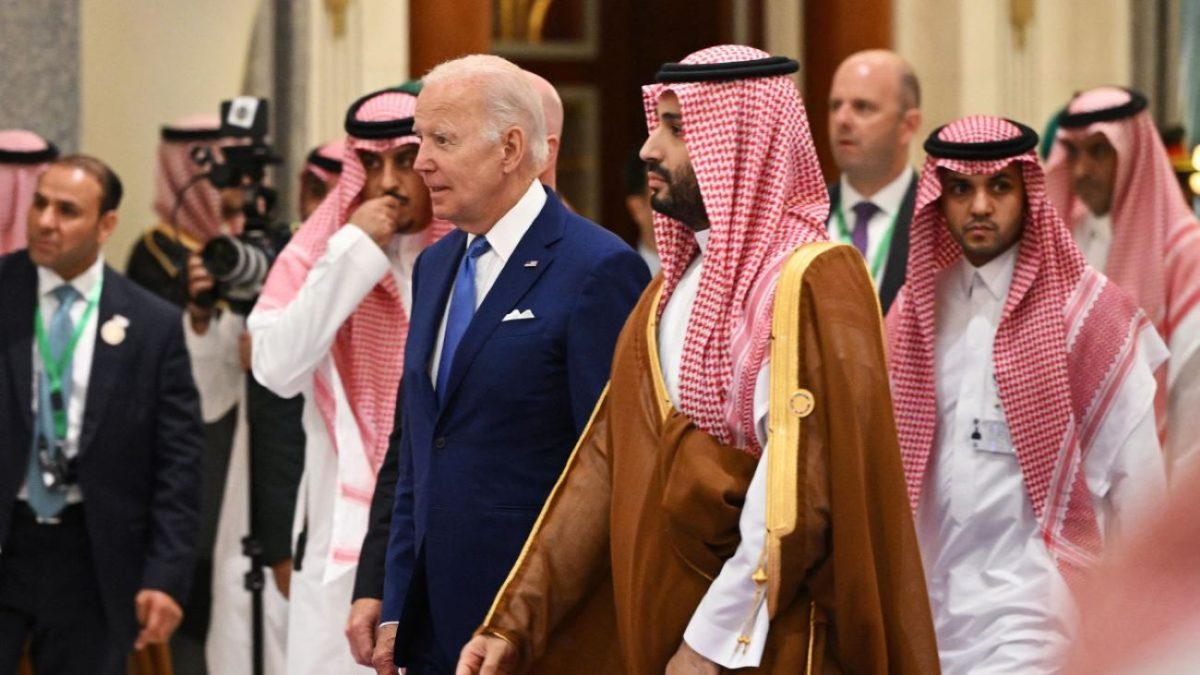Saudi Arabia has long sought its own civil nuclear capability and has made US assistance with the programme a key demand in a potential deal to normalise relations with Israel.
A breakthrough in relations between Israel and Saudi Arabia, the world’s largest oil exporter, would be a major diplomatic victory for President Joe Biden’s administration, which has described it as a priority.
But Washington has baulked at Saudi Arabia’s demand for there to be no restrictions on enriching its own uranium.
With the US insisting on placing restrictions on the use of the technology, Saudi Arabia is considering alternative offers to develop the nuclear facilities from countries including China, Russia and France, according to one person familiar with the matter.
According to the FT, the person said Saudi Arabia would make its decision based on the best offer.
Meanwhile, another person familiar with the matter said that while Riyadh would prefer the US, which is considered to have better technology and is already a close Saudi ally, Washington’s restrictions on uranium enrichment would rule out cooperation.
In recent years, Saudi Arabia has drawn closer to China, its largest trading partner, and earlier this week the Gulf kingdom was invited to join the BRICS group of emerging economies.
Last year, Riyadh hosted Chinese President Xi Jinping for a regional summit, with Beijing this March brokering a rapprochement between the kingdom and its main rival in the region, Iran.
But the kingdom remains heavily reliant on US security support, and wants Washington to agree a mutual defence pact in exchange for any normalising of relations with Israel.
Earlier this month, Israel said that it would not necessarily oppose an agreement that would allow Saudi Arabia to enrich uranium for research purposes, according to Israeli national security adviser Tzachi Hanegbi.
Hanegbi told public broadcaster Kan that Israel’s consent was not needed for such a move.
“Egypt and the [United Arab] Emirates operate nuclear research centres and these are not dangerous,” he continued, adding, “Dozens of countries operate projects with civilian nuclear cores and with nuclear endeavours for energy. This is not something that endangers them nor their neighbours.”
Though the security adviser’s comments focused on a civilian nuclear programme, Riyadh has previously talked up its desire to develop a nuclear bomb.
In March 2018, Saudi Crown Prince Mohammed bin Salman stated, “Saudi Arabia does not want to acquire any nuclear bomb, but without a doubt, if Iran developed a nuclear bomb, we will follow suit as soon as possible.”
Leader of the Islamic Revolution Ayatollah Seyyed Ali Khamenei issued an official fatwa (religious decree) clearly establishing that any form of acquisition, development, and use of nuclear weapons violate Islamic principles and are therefore forbidden.
Since then, Riyadh and Tehran have re-established diplomatic relations.
